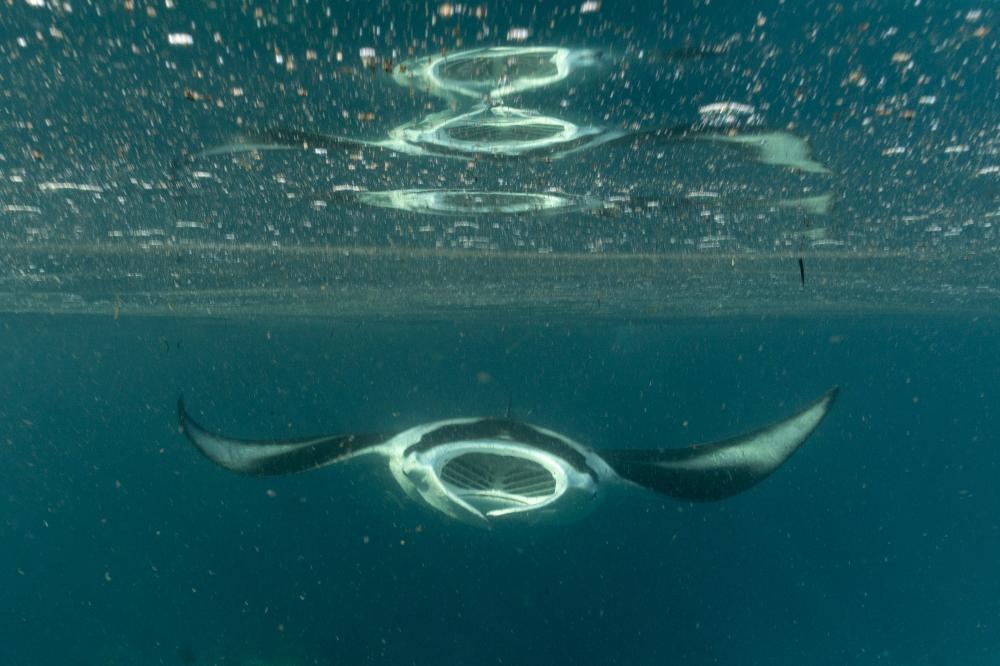Mobula alfredi
Manta alfrediSimilar Species
Same Genus
Distribution
Description
Recently separated from Manta birostris (giant manta ray).
Manta alfredi has a few - to many - dark spots (occasionally none), on the ventral surface between the rows of gill slits. Manta birostris has no spots between the gill slits.
Dorsally, the shape and definition of the whitish-coloured shoulder patches is also a distinguishing feature. Manta birostris has very distinct white l shaped markings on the shoulders and wing tips. Manta alfredi has more greyish chevrons which eminate from the spiracle before curving medially.
If the dorsal view is difficult to resolve a final check is the presence of a lump at the tail base just behind the dorsal fin in Manta birostris. This lump is absent in Manta alfredi.
Information
Max Size: N/A cm
Sea Temperature Range: N/A
Depth: N/A
Habitat Generalization Index: N/A
Also referred to as the SGI (Species Generalisation Index), this describes the habitat niche breadth of the species. Species with values less than 15 are found in a relatively narrow range of reef habitat types (specialists), while those over 25 may be found on most hard substrates within their range (generalists). Learn more here.
Conservation and Rarity
IUCN Status: Vulnerable
Occurrence: Rare (0.7% of sites)
Occurrence describes how often the species is found on surveys within its distribution. It is calculated as the % of reef sites surveyed by RLS divers across all the ecoregions in which the species has been observed
Abundance: Solitary (1 per transect)
Abundance is calculated as the average number of individuals recorded per RLS transect, where present.
Edit by: Andrew Green











